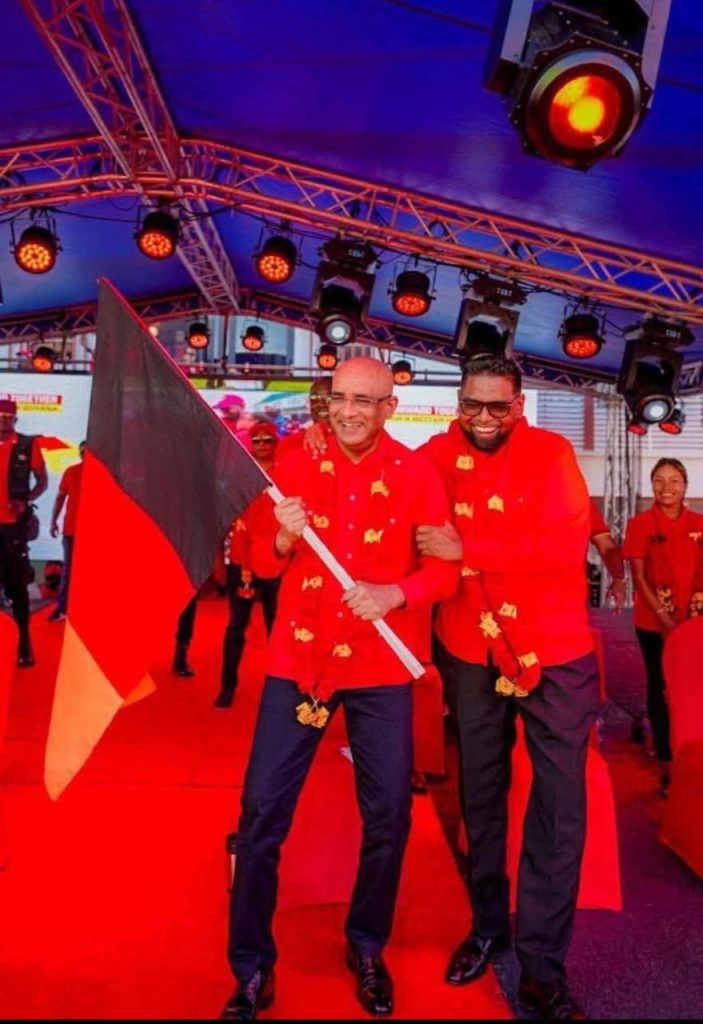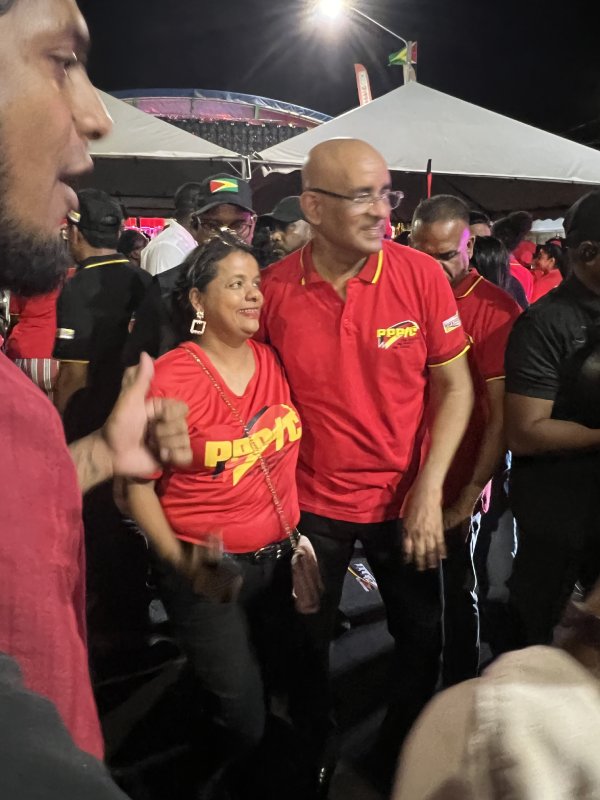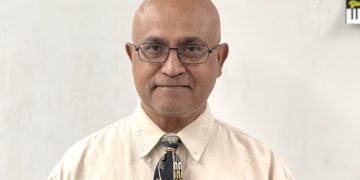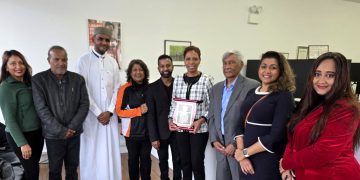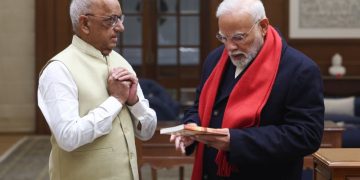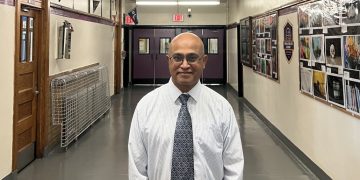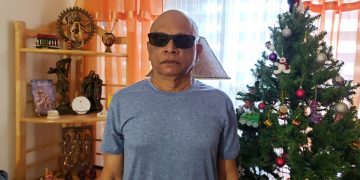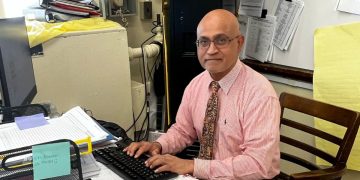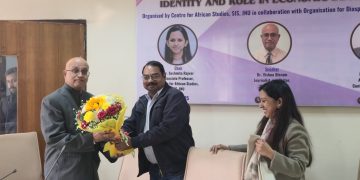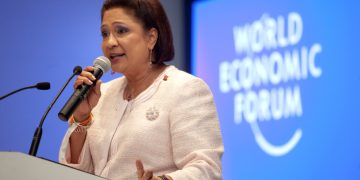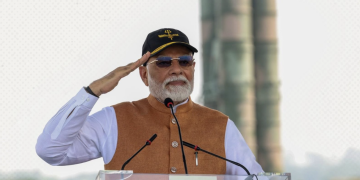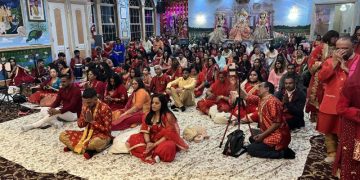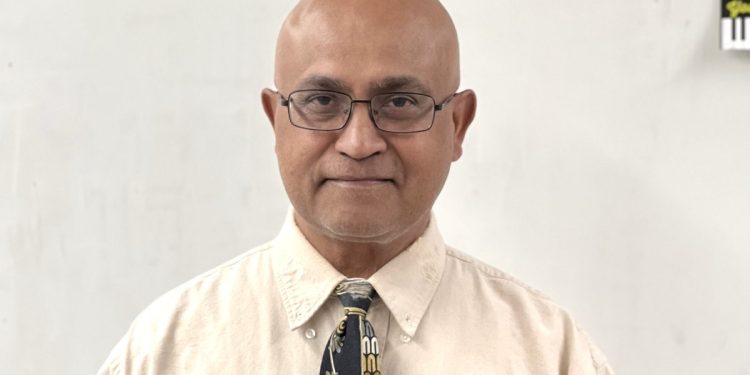President Irfaan Ali has secured a historic second term, gaining three seats. The ruling PPP has won 36 seats while the former official opposition APNU has won 12 seats, down from 31, while a newcomer WIN has won 16 and another newcomer FGM led by a former APNU MP, has won 1 seat. It is noted that the opposition has not formally acknowledged the success of the incumbent and congratulated it in what was a very peaceful poll. The PPP has won an even larger majority than in the 2020 election, albeit a low turnout, when many did not foresee such a mandate. So the opposition must acknowledge this feat. Congrats are in order, and the opposition should give serious thought of critically cooperating with the new government for the benefit of all Guyanese.
It must be noted that voting was calm unlike in previous elections going back to the 1960s. President Ali has reached out to the opposition. He thanked voters for giving him a second term for having trust and faith in him, noting he is President of all and has stated he will work to build an inclusive government including the opposition.
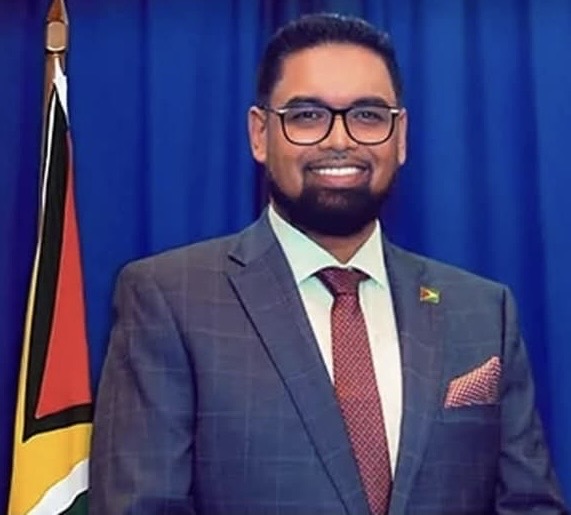
Why was Ali and PPP able secure a second term? A combination of factors contributed to the victory, among them, strong nationalist sentiment against Venezuela and growing alliance with USA, national economic improvement, Ali and his VP Jagdeo’s personal popularity, the government’s social welfare initiatives, PPP branding, a fragmented opposition, luring of opposition political figures, a resource or monetary advantage, and better public relations. Figures in APNU were not appealing, lacking charisma; they were dull and dour even with its own supporters not finding them attractive, resulting in a low turnout.
The fear of Venezuelan invasion solidified Guyanese. Close relations with USA being cultivated by the Ali/Jagdeo administration has given a majority of Guyanese security comfort, and they rallied with the PPP.
The PPP campaigned on economic improvements including fiscal responsibility, a decline in unemployment rate, and the importance of continuity. The government created thousands of part time jobs for the lower unemployed class, winning over many who were previously dissatisfied. It urged voters not to risk reversing the progress achieved so far, reminding them of the disastrous rule of APNU administration during the 2015-2020 period, and its failed attempts to rig the elections as well as prior riggings (1968-1985) and banning of foodstuffs.
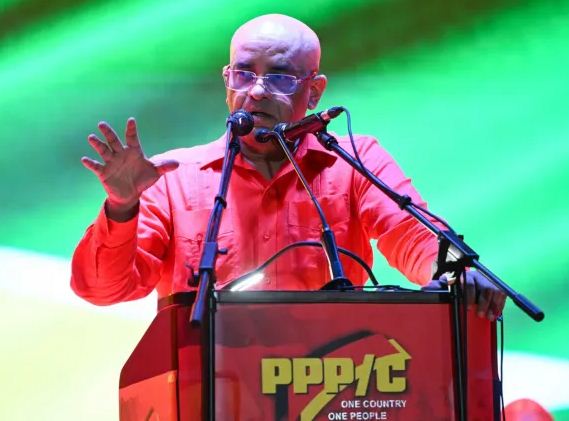
The economy grew rapidly over the last five years, primarily a result of investment by and revenues obtained from oil exploration and production by the multinational giant, Exxon/Mobil. Without Exxon’s investment and the royalty and profit sharing, its huge injection of billions of American dollars, the country would have lacked revenues to carry out even basic infrastructure work and all of the social investments in education, health care, pension, child care, welfare handouts for the poor, and grants. The public appeared satisfied with government’s handling of the revenue from Exxon.
The opposition did criticize the government on the economy, asserting that the lower income half of the nation faced socioeconomic challenges, including high cost of living and poverty. But the opposition’s message was drowned out by superior PPP public relations. The PPP promised that more economic reforms and social investments are coming that will cushion against rising prices and the population bought in.
The PPP used state resources effectively to create brand Irfaan “Ali and Jagdeo” and implemented welfare programs that captured a majority of voters. There was a charisma and personal appeal of Ali and Jagdeo that that was associated with strong leadership and better governance than the predecessors. There was unity in the PPP camp and disunity in the opposition. The PPP duo was present almost everywhere; the opposition presence was lacking. Also, Ali and Jagdeo’s personal popularity of going to the people (outreaches) and of giving handouts won the government kudos.
The social welfare initiatives were very appealing. Many voters felt these initiatives represented positive changes and wanted to give PPP more time to implement other promises. Jagdeo provided economic stability and growth over the last five years. Voters have confidence in Jagdeo’s handling of the economy. A second term would be good for business. Despite challenges like job growth, many in the business community and among the general public feared the return of the opposition that governed disastrously between 2015 and 2020. The PPP’s strong mandate was seen as a vote for continued stability. APNU had broken several promises during its term in office. And the opposition APNU did not present itself as a viable alternative. The opposition, excluding WIN, was very weak. APNU was viewed as fragmented and disorganized, unable to mount a cohesive challenge to the PPP’s superior organizational strength and massive financial advantage. Jagdeo has had tremendous experience as an election campaigner going back to 1997, easily outwitting the opposition. In addition, the resources from incumbency and monetary advantage allowed the PPP to run an efficient and effective campaign that overwhelmed the opposition.
It is noted that Bharrat Jagdeo has dominated politics since 1997 when he was chosen as a figure representing youth in the PPP A Team. And since August 2020, Jagdeo and Ali have dominated politics in Guyana. Their policies had set the state for political gains and a second term.
Ali is entering the pantheon of Guyana’s leaders, including the party’s founder Cheddi Jagan, to win re-election. Jagdeo was the first to win majorities in Parliament in back-to-back elections since democracy was restored in 1992. Jagdeo won 36 seats in 2006 and now Ali has also won 36 seats, commanding a sweeping mandate to govern.
In order to mount an effective challenge to the PPP, APNU will have to do a serious introspection and regroup under new leadership. WIN must be congratulated for its performance displacing APNU as the official opposition.
It is noted that this is the first time since 2006 that a President was given a second term since democratic elections were held in the country in 1992. Ali’s predecessors David Granger and Donald Ramotar were defeated in attempts at re-election. The constitution only allows two Presidential terms. Congrats to President Ali, Hardat Jagdeo, Mark Phillips, and the PPP team.
